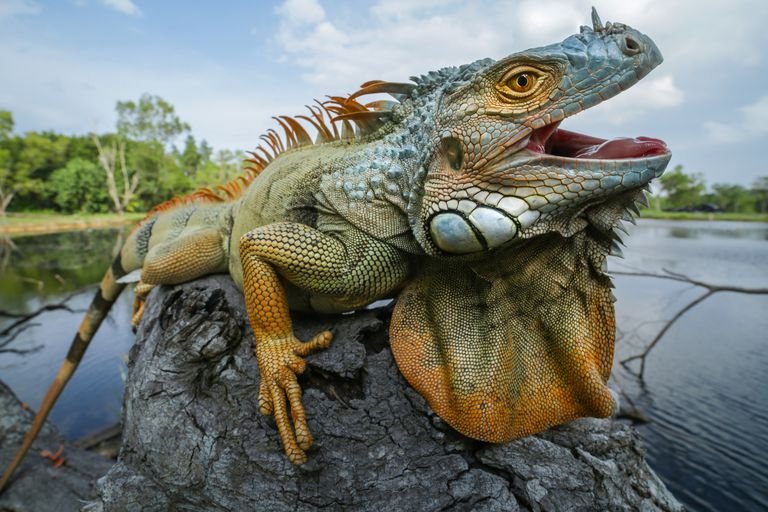
Imagine you’re considering adopting a puppy, but you have to research if your local laws allow it. That’s pretty much what’s happening with iguanas. Before you jump into the world of iguana ownership, it’s crucial to understand the regulations in your area. Not only will this help you avoid any legal trouble, but it also ensures that you’re providing the best care for your new green friend. So, let’s take a closer look at the different aspects of keeping iguanas and what the rules are in various states and countries.
Understanding Iguana Ownership Regulations
Every state and country has its own laws about owning exotic pets, including iguanas. The primary reasons for these regulations often revolve around animal welfare and public safety. Some areas may view iguanas as potentially dangerous or capable of causing ecological imbalance. For instance, if iguanas escape, they can disrupt local ecosystems.
Before you consider bringing one home, you need to check the specific laws in your area. Things like permits, registration, and even health inspections might be required in some jurisdictions. Checking local wildlife regulations is a must—it’s the first step towards responsible ownership. This information can usually be found on state government websites or local animal control offices.
State-by-State Breakdown
Laws can differ significantly from one state to another, making it important to look closely at local regulations. Here’s a quick summary of a few regions:
- Florida: Iguanas are legal, but certain species may require permits. Considering Florida’s warm climate, it’s not surprising that many people keep them here.
- California: Generally, iguanas are allowed, but certain regulations may apply regarding specific species.
- Ohio: While iguanas are legal, they must be registered, and there are guidelines about their care and housing.
- New York: Iguanas are permitted, but there are strict regulations on how they should be cared for.
Each state might have its own quirks and requirements, so it’s best to do your homework. And if you’re thinking about relocating, make sure to check the laws there, too!
Country Considerations
It’s not just the United States that has laws about iguana ownership. Around the world, different countries have varied regulations. For example, in the UK, owning an iguana is generally allowed, but you must adhere to specific animal welfare standards. Meanwhile, in some parts of Australia, iguanas are illegal to keep as pets due to strict regulations on native and non-native species.
Traveling internationally with an iguana can also involve significant paperwork, such as permits and health certificates. If you’re planning to move or travel, make sure you’re up to date on the pet policies of the country you’re entering.
Health and Safety Regulations
Even if iguanas are legal where you live, caring for one involves important responsibilities. Healthy iguanas require specific habitat conditions, a proper diet, and regular veterinary care. Laws may outline what constitutes acceptable living conditions and outlines for veterinary visits.
You might be wondering how to create a suitable environment for your iguana. Here are a few things to keep in mind:
– Temperature and Lighting: Iguanas need specific temperature ranges to thrive. Using UVB lighting is crucial for their health, as it helps them absorb calcium.
– Diet: A balanced diet rich in leafy greens and vegetables is essential. Avoid feeding them iceberg lettuce, as it has little nutritional value.
– Space: Iguanas can grow quite large, so they need ample space to roam. This isn’t a pet that can live comfortably in a small cage.
Failing to meet these care standards could lead not only to health issues for your iguana but also possible legal repercussions for neglecting pet care laws.
Permits and Licensing
In states or countries where iguanas are legal to own, you might still need a permit or license. This process is often in place to ensure that owners are informed and responsible. Typically, you may be required to fill out an application, pay a fee, and sometimes even undergo an inspection of your living environment.
If you’re serious about owning an iguana, it’s a good idea to start this process well before bringing your new pet home. Being prepared can save you from headaches later on.
Common Misconceptions About Iguana Ownership
Iguanas can be misunderstood as low-maintenance pets. Many people think they can just leave an iguana in its tank and forget about it. Here’s the thing: iguanas are not just decorative reptiles; they need interaction, care, and proper environments to thrive.
Another common myth is that iguanas are not prone to illnesses, but this is far from true. Like any pet, iguanas can face health challenges that require careful management. This may include infections, metabolic bone disease, and more. Regular vet check-ups are essential to catch potential diseases early.
While iguanas can be wonderful companions, it’s important to recognize their complexities and needs.
Why Legal Awareness Matters
Being aware of the legality surrounding iguana ownership is crucial for several reasons. Firstly, it protects you from potential legal issues, such as fines or confiscation of your pet. Additionally, understanding your responsibilities can help ensure that you provide the best possible care for your iguana.
Lastly, fostering responsible ownership contributes to the overall welfare of these fascinating creatures. When people are educated about the laws and how to properly care for iguanas, it can lead to a healthier and more sustainable relationship between humans and reptiles.
In conclusion, whether you’re a seasoned reptile enthusiast or a curious beginner, understanding the legalities of iguana ownership is a vital first step. By familiarizing yourself with local laws and care requirements, you can provide the best home for your pet and enjoy a rewarding experience as an iguana owner. So before you dive headfirst into iguana ownership, take a moment to explore what it means for you and your community. Your future iguana will thank you!

